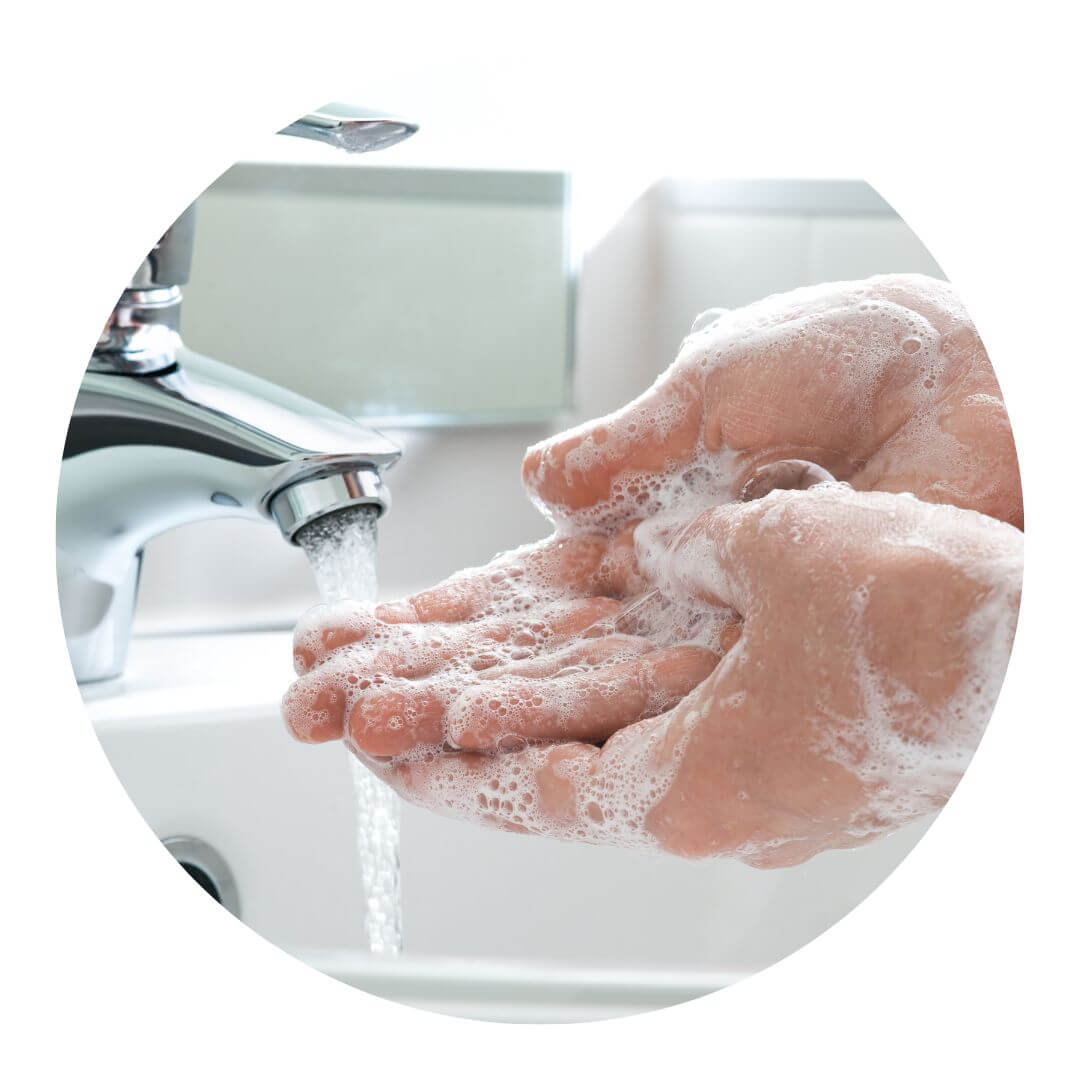Are Hand Wash And Body Wash The Same Thing?
No, hand wash and body wash are not the same thing, even though both are used for cleansing. They are formulated differently to address the specific needs of the skin on different parts of the body. Here’s a breakdown of the differences between hand wash and body wash, and why it’s generally a good idea to use them for their intended purposes:
Purpose and Usage
Hand Wash: Hand wash is specifically designed for cleansing the hands. It is formulated to remove dirt, bacteria, and viruses that accumulate on the hands throughout the day. Since hands often come into contact with various surfaces and substances, hand wash is typically stronger and has more antibacterial properties like hand soap compared to body wash.
Body Wash: Body wash is designed to cleanse the entire body. It is formulated to remove sweat, dirt, oil, and impurities from the skin without stripping it of its natural oils. Body wash is usually milder and more moisturising to cater to the larger surface area of the skin and its sensitivity.
Formulation Differences
Cleansing Agents: Hand wash may contain stronger cleansing agents or higher concentrations of antibacterial ingredients to effectively kill germs. These ingredients are effective for hand hygiene but may be too harsh for the more sensitive skin on the rest of the body.
Moisturisers: Body wash often contains more moisturising and nourishing ingredients, to hydrate and protect the skin. This is important because the skin on the body can easily become dry or irritated from frequent washing. Hand washes may also contain moisturising ingredients, but their primary focus is on cleaning.
pH Balance: The skin on the hands is exposed to more environmental stressors and chemicals, so hand washes might be formulated with a different pH balance to provide effective cleansing. Body wash is usually pH-balanced to be gentle on the skin and maintain its natural barrier.
Skin Sensitivity and Care
Hand Wash: The skin on the hands is generally more resilient, but because hands are washed frequently, hand washes are formulated to be effective yet still somewhat gentle like hand soaps. Frequent use of harsh hand washes can lead to dryness, irritation, or even cracking, especially if they contain high levels of alcohol or other strong antibacterial agents.
Body Wash: Body wash is designed to be gentler and more soothing because the skin on other parts of the body, such as the chest, back, and legs, can be more sensitive. A gentle formulation helps to prevent dryness and irritation, making it suitable for daily use on the entire body.
Antibacterial Properties
Hand Wash: Many hand washes contain antibacterial agents specifically designed to kill germs and bacteria. These can be beneficial in reducing the spread of illness and infection, especially in public or healthcare settings.
Body Wash: While some body washes may have antibacterial properties, they are typically not as potent as those in hand washes. Body wash focuses more on overall cleansing and moisturising rather than targeting bacteria and germs specifically.
Fragrance and Sensory Experience
Hand Wash: Hand washes often come in a wide variety of fragrances and may contain stronger scents to leave a pleasant aroma on the hands after washing. However, they may not contain as many skin-conditioning ingredients as body washes.
Body Wash: Body washes are also available in various scents, but they often include fragrances that are designed to be gentle and non-irritating. The sensory experience of body wash can be more luxurious, with ingredients that provide a rich lather and leave the skin feeling soft and moisturised.
Packaging and Use
Hand Wash: Typically comes in a pump bottle for easy access at sinks. The design makes it convenient for frequent use throughout the day.
Body Wash: Usually comes in larger bottles or tubes and is designed for use in the shower. It can be used with a washcloth, loofah, or directly by hand.
Why Use A Hand Wash?
Using hand wash is essential for maintaining good hygiene, preventing the spread of germs, and protecting your overall health. The hands are one of the primary ways that bacteria, viruses, and other harmful microorganisms are spread, so keeping them clean is crucial. Here’s why using hand wash is important:
Effective Removal of Germs
Kills Bacteria and Viruses: Hand wash, especially those formulated with antibacterial or antimicrobial ingredients, effectively kills bacteria and viruses on the skin. Regular use of hand wash can significantly reduce the presence of germs on the hands, which is vital for preventing infections.
Reduces Risk of Illness: By effectively removing germs from your hands, hand wash helps reduce the risk of transmitting illnesses like colds, flu, and gastrointestinal infections. This is particularly important during cold and flu season or in situations where you are exposed to others who may be sick.
Prevents the Spread of Contagious Diseases
Protects Others: Regular hand washing with hand wash and our hand soaps helps prevent the spread of contagious diseases to others. This is especially important in public settings, healthcare facilities, schools, and workplaces, where the transmission of germs can lead to outbreaks.
Reduces Cross-Contamination: When you wash your hands, you reduce the chances of cross-contaminating surfaces and objects that others might touch, such as door handles, keyboards, or shared equipment. This is important in maintaining a safe and healthy environment.
Removes Dirt, Grime, and Residues
Clean Hands: Hand wash effectively removes visible dirt, grease, and grime that can accumulate on the hands throughout the day. Whether you’ve been handling food, working outdoors, or touching various surfaces, hand wash helps ensure your hands are clean.
Eliminates Residues: Everyday activities can leave behind residues from substances like food, chemicals, or cosmetics. Hand wash helps remove these residues, leaving your hands feeling clean and fresh.
Maintains Skin Health
Hydration and Care: Our hand washes are formulated with moisturising ingredients that help keep the skin on your hands hydrated. This is important because frequent washing can strip the skin of its natural oils, leading to dryness and irritation. Hand washes with added moisturisers or gentle cleansing agents help maintain the skin’s natural barrier.
Prevents Skin Conditions: Regular use of hand wash helps prevent skin conditions that can arise from exposure to harmful substances. Keeping your hands clean reduces the risk of developing contact dermatitis or other skin irritations.
Promotes Good Hygiene Habits
Daily Routine: Using hand wash encourages regular hand washing, which is a fundamental hygiene practice. It helps instill good hygiene habits in children and adults alike, contributing to overall public health.
Health Awareness: The act of washing hands with hand wash is a simple yet effective reminder of the importance of personal hygiene. It encourages individuals to be mindful of their health and the health of those around them.
Essential in Food Preparation and Healthcare
Food Safety: Using hand wash is crucial in food preparation to prevent foodborne illnesses. Washing hands before handling food or eating helps eliminate harmful bacteria and contaminants that could be transferred to food.
Healthcare Settings: In healthcare settings, using hand wash is vital for preventing the spread of infections. Healthcare professionals are required to wash their hands frequently to protect patients and themselves.
Convenience and Availability
Easy to Use: Hand wash is readily available and easy to use. It comes in convenient pump bottles, making it accessible in various settings, such as bathrooms, kitchens, and public restrooms.
Effective with Water: Hand wash requires water to be effective, which makes it a simple and efficient way to clean your hands. The combination of hand wash and water helps rinse away dirt, oils, and microbes effectively.
Is Using A Hand Wash Ok For Dry Skin?
Yes, using a hand wash for dry skin is okay, but it’s important to choose a hand wash that is specifically formulated to be gentle and moisturising. People with dry skin can experience further dryness, irritation, or even cracking if they use harsh or overly stripping hand washes. Here’s what to consider when choosing and using a hand wash for dry skin and follow up with our hand creams and moisturiers:
Avoid Harsh Ingredients
Alcohol-Free: Hand washes with high alcohol content can be very drying to the skin. While alcohol is effective at killing germs, it’s better to choose alcohol-free or low-alcohol options if you have dry skin.
Fragrance-Free: Some fragrances can irritate sensitive or dry skin. Opt for fragrance-free or lightly scented hand washes if you have a history of skin sensitivity. Our hand washes are very gentle on the skin.
Avoid Antibacterial Agents: Antibacterial hand washes often contain ingredients like triclosan or triclocarban, which can be harsh on the skin. Unless you specifically need antibacterial protection, it’s better to choose a gentle, non-antibacterial formula for everyday use.
Use Hand Cream After Washing
Moisturise Immediately: After washing your hands, apply a rich hand cream to replenish moisture and protect the skin barrier. This is especially important for dry skin, as it helps to lock in hydration and prevent the hands from becoming chapped.
Look for Hydrating Ingredients: Choose a hand cream with ingredients like hyaluronic acid and natural oils to provide long-lasting moisture and nourishment.
Consider Using Hand Wash Alternatives
Cream or Oil-Based Hand Washes: Cream or oil-based hand washes are designed to be extra moisturising. They cleanse the hands while also providing a layer of hydration, making them ideal for people with very dry skin.
Washing Technique Matters
Use Lukewarm Water: Hot water can strip the skin of its natural oils, leading to dryness. Use lukewarm water when washing your hands to minimise moisture loss.
Pat Dry Gently: After washing, pat your hands dry with a soft towel instead of rubbing them vigorously. This helps prevent further irritation and dryness.
















